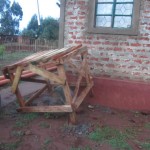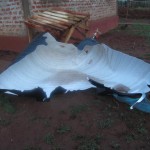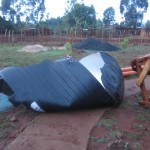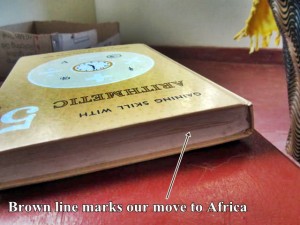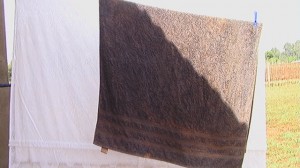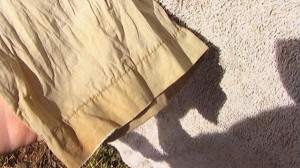Although it’s not my favorite task, I manage to keep up with our daily laundry and do an OK job of it. Sure, sometimes there are still stains here and there, but often it’s more important to invest my time in other things than to spend an extra hour perfecting clean clothes. After all, clean is relative. However, during the few days when we had our short-term missions team here at the house, I knew it would be too much unless I had help. So I out-sourced my laundry to a couple of ladies in the neighborhood. Frankly, it was a nice change of pace. But when it was time to get back in the saddle this Monday, I rolled up my sleeves early in the morning and got ready to work.
I was surprised to hear a knock at the door and see a familiar face–one of the ladies who had helped me out the week before. Her husband has no work and has been away for about a month looking for something to help support his wife and five children at home. Unfortunately, he has been largely unsuccessful. I was glad to have given her some work, as it was indeed a mutual blessing.
She asked me if I had anything for her to do, and I indicated that it was time for me to get back to doing my own wash. She looked disappointed and said, “But we have no food. I will work for food. Can you help?” So I let her do my wash and gave her enough food for the day. The next day, the same. Not because I can’t do my own laundry (in fact, part of me feels guilty for letting her do it!) but because if I don’t give her work, she likely won’t eat. Missing meals is par for the course for many in this area. Often the only meal is a supper of ugali after a hard day’s work.
Jesus told us to pray, “Give us this day our daily bread.” It is sobering indeed to see how true this is for the folks in our community. Though we’ve historically been careful with our food budget and increasingly simplified in that area, we’ve never been wanting. We’ve always bought in bulk in order to save money. Here, “bulk” is almost non-existent. Instead, quantities are often single-serving in order to minimize expense and allow people to get what they need for one day or one meal. Truly, something we’ve never had to experience and just another example of how blessed…spoiled…we’ve been. Though I can’t say I would like the insecurity of living hand-to-mouth, I’m equally sure that there is blessing to be found in trusting in God to indeed provide our daily bread.

